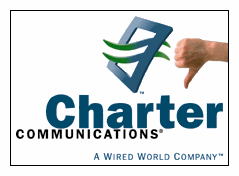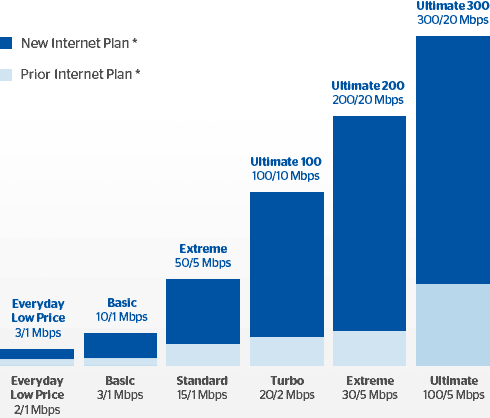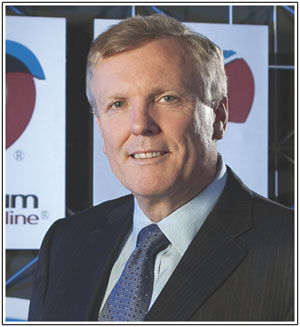 STATE OF NEW YORK
STATE OF NEW YORK
PUBLIC SERVICE COMMISSION
_______________________________________
Joint Petition of Charter Communications and Time
Warner Cable for Approval of a Transfer of Control
of Subsidiaries and Franchises, Pro Forma Case 15-M-0388
Reorganization, and Certain Financing Arrangements.
_______________________________________
Statement of Opposition to Joint Petition and
Response to Redacted Comments of DPS Staff
Phillip M. Dampier, Director and Founder: Stop the Cap!
Rochester, New York
September 25, 2015
Stop the Cap! is a Rochester-based consumer group founded in 2008 to fight against the introduction of artificial limits on broadband usage (usage caps, consumption billing, speed throttling) and to promote better broadband speeds and service for consumers. Our group does not solicit or accept funding from lobbyists, companies, or others affiliated with the telecommunications industry. We are entirely supported by individual donors who share our views.
Introduction
Our opposition to the Joint Petition is based on our belief it does not meet the “public interest” test established in Section 222 of the New York Public Service law, and must therefore be denied.
For the sake of brevity, we wish to associate ourselves with most of the views of the DPS Staff contained in their redacted comments regarding this case, published on the DPS website on September 16, 2015. Most of our testimony will seek to expand on their findings or add additional information to the record for the Commission’s consideration.
As we stated in our remarks regarding the Comcast-Time Warner Cable merger, New York law obligates the applicant alone to demonstrate its proposal is in the public interest. If the Commission finds the application does not meet the public interest or provide sufficient public benefits, it should be rejected. The DPS staff has reported to you Charter Communications and Time Warner Cable have not met their burden. We agree.
The DPS staff then proposes a mitigation strategy in an effort to tip the balance in favor of the applicant. It remains our view it is not the Commission’s responsibility to help tip the balance in favor of an applicant that has failed to meet its burden.
Nevertheless, we offer the Commission our insight about Charter Communications, its proposals, and the DPS staff recommendations with the hope it will be useful to win commitments from Charter should the Commission choose to proceed with approval, enforcing modifications to deliver the public interest benefits consumers across New York tell us they actually want and need from their providers.
Discussion

Phillip Dampier
New York State, particularly across the upstate region, is not well positioned to take advantage of next generation broadband networks. Just two providers deliver telecommunications services to the majority of New York: Verizon Communications and Time Warner Cable. Although Frontier Communications and Cablevision also deliver service, their service areas are much smaller than the two dominant incumbents. The decisions Verizon and Time Warner Cable make about their investments in broadband and telephone service affect millions of New Yorkers.
Many New York residents have only one choice for Internet service that meets the Federal Communications Commission’s definition of broadband: 25Mbps download speed and at least 3Mbps upload speed.[1] In areas where Verizon FiOS is not available, Time Warner Cable is the only significant provider consistently providing service options at or above 25Mbps. The most common alternative is DSL, which rarely meets the FCC’s minimum definition of broadband.
With this in mind, the FCC reported 53 percent of rural Americans lack access to broadband service achieving speeds of 25Mbps or better. As much as 20 percent still lack access to broadband at speeds achieving the FCC’s old benchmark of 4Mbps. Upstate New York, in particular, is a long way away from achieving the goals of 100Mbps broadband set by Gov. Cuomo, unless you have access to a cable broadband provider.
In Rochester, the majority of residents have only one choice for a provider that meets the FCC’s definition of broadband: Time Warner Cable. While Frontier Communications has made investments to improve their wireline network, only a small minority of customers qualify for DSL service that can meet the FCC’s benchmarks.
While Verizon Communications has done an admirable job delivering its fiber to the home service FiOS to portions of New York, the company has suspended expansion of the service and has not even met its service obligations in cities like New York.[2]
Even more concerning is the fact none of the significant incumbent providers serving New Yorkers have expressed any interest in providing residential gigabit speed service. Google Fiber has not announced any expansion into New York State and other significant gigabit speed providers, including AT&T, do not provide wireline service in New York.
In contrast, in states including Texas, North Carolina, Georgia, Missouri, and Tennessee, many consumers have the option of choosing at least two gigabit service providers (Google or AT&T) as well as municipal or public broadband providers such as EPB, which serves the Chattanooga area. Time Warner Cable has focused much of its upgrade activity on these communities to remain competitive, delivering 300Mbps broadband service for the price it used to charge for 50Mbps speeds.
In western New York, the fastest broadband speed most residential customers can buy is just 50Mbps. Charter Communications proposes to increase that speed in some areas to a maximum of 100Mbps, along with their entry level 60Mbps plan. Although helpful, that offers little solace to residents and small businesses that would like the option to purchase considerably faster Internet speeds that are now becoming available in other parts of the country.
The Commission’s decision will have an enormous impact on what kinds of telecommunications services will be available to New Yorkers for years to come. Verizon has shown no interest in resuming fiber service upgrades, so most customers will continue to purchase Internet access from the incumbent cable operator to obtain the broadband speeds they require. Today that usually means Time Warner Cable. Sometime next year, that could be Charter Communications.
Time Warner Cable vs. Charter Communications
The most important question before the Commission is which cable operator is better positioned to deliver the services customers in this state want and/or need. We argue that operator is Time Warner Cable, not Charter Communications.
Since the termination of the Comcast-Time Warner Cable merger, Time Warner Cable has responsibly invested in their infrastructure without assuming an irresponsible amount of debt.
 Time Warner Cable CEO Robert Marcus reported significant progress in their first quarter 2015 report to shareholders and customers, despite the distraction of the Comcast merger[3]:
Time Warner Cable CEO Robert Marcus reported significant progress in their first quarter 2015 report to shareholders and customers, despite the distraction of the Comcast merger[3]:
Over the past 16 months, we’ve made significant investments to improve our customers’ experience:
- Investing more than $5.2 billion to, among other things, improve the reliability of our network and upgrade customer premise equipment – including set-top boxes and cable modems – with the latest technologies and expand its network to additional residences, commercial buildings and cell towers;
- Launching TWC Maxx, which features greater reliability, all-digital video, advanced TV services, standard tier of Internet speeds at 50 Mbps, and higher tiers of service up to 300 Mbps. New York, Los Angeles and Austin are complete; Dallas, San Antonio and Kansas City are underway; Charlotte, Raleigh and Hawaii are slated for later this year; and San Diego is expected to be done in early 2016;
- Introducing Enhanced DVR, a six-tuner set-top box that allows customers to record up to six shows simultaneously and store up to 150 hours of HD content;
- Increasing the number of Cable Wi-Fi hotspots available to our customers to 400,000;
- Rolling out our cloud-based video guide to 8 million set-top boxes to date. The guide also makes it easier to browse our On Demand library, which now sits at 30,000 free and paid titles and continues to grow;
- Expanding our industry-leading TWC TV app – which allows customers to watch live TV and On Demand content and control and program their DVR from inside and outside the home. TWC TV is now available on Xbox One, Xbox 360, Amazon Kindle Fire HD and HDX tablets, Android and IOS phones and tablets, Fan TV, PCs, Samsung TV and Roku;
Serving customers on their schedules rather than ours. We expanded one-hour appointment windows across the company and in Q1 met that window 97 percent of the time. We continue to add nighttime and weekend appointments.

Marcus
Since that report, Time Warner Cable has announced new Maxx service upgrade areas – Greensboro and Wilmington, N.C. At least 45 percent of Time Warner Cable’s national footprint will be serviced with Maxx upgrades by the end of this year, and Marcus has indicated additional cities will receive upgrades in 2016.[4]
Marcus has indicated repeatedly he intends to see Maxx service upgrades extend even further. On the January 29, 2015 quarterly results conference call with investors, Marcus indicated Maxx upgrades delivered tangible benefits to the company, including increased customer satisfaction, higher network reliability, and a stronger product line. Based on those factors, it would be logical to assume Time Warner Cable would continue its upgrade project, and indeed Marcus confirmed this in his remarks:
“Our aim is to have 75% of our footprint enabled with Maxx […] by the end of [2016], and my guess is we’re continuing to roll it out beyond that,” said Marcus[5]. “So the only question is prioritization, and obviously as we think about where to go first, competitive dynamics are a factor. So that includes Google, although it’s not explosively dictated by where Google decides to go. In fact I think we announced the Carolinas before Google did their announcement this week. So competitors are certainly relevant obviously.
At the rate Time Warner Cable has been rolling out Maxx upgrades, which were first announced on January 30, 2014[6], with 45% of its service area upgraded within 23 months, it is likely the company would complete its Maxx upgrade to all of its service areas within the next 24-30 months. The DPS staff also notes, “there is no indication that Petitioner’s plan for converting to all-digital in New York is any different from Time Warner’s existing plan.”
Charter’s upgrade proposal is, in fact, generally inferior to what Time Warner Cable is accomplishing on its own. We strongly recommend the Commission carefully consider whether Charter’s proposal is as truly compelling as they claim.
Charter Communications’ upgrade proposal is not a good deal for New York.
We agree with the DPS staff’s conclusion Time Warner Cable, on its own, would likely complete its Maxx upgrade program across upstate New York at or around the same time Charter’s proposed upgrades would be complete. Therefore, when comparing Charter’s proposal with Time Warner Cable’s existing service, we urge you to use Time Warner Cable Maxx service as the benchmark, not the existing level of service provided in upstate New York today.
 Time Warner Cable Maxx offers 50/5 Mbps speeds under its most popular Standard plan. In contrast, Charter proposes to offer 60/5Mbps service under its most-popular Spectrum plan. While Charter’s offer is superior at first glance, it comes at a cost to customers looking for more budget-priced service or those seeking faster speeds.
Time Warner Cable Maxx offers 50/5 Mbps speeds under its most popular Standard plan. In contrast, Charter proposes to offer 60/5Mbps service under its most-popular Spectrum plan. While Charter’s offer is superior at first glance, it comes at a cost to customers looking for more budget-priced service or those seeking faster speeds.
Charter has no plans to continue Time Warner Cable’s $14.99 Everyday Low Price Internet service – a very important offer for low income residents and senior citizens who are unable to afford the nearly $60 regular price both companies charge for their 50 or 60Mbps tiers. Time Warner Cable offers this tier without preconditions, restricted qualifiers, contracts, or limits on what types of services can be bundled with it. Any consumer qualifies for the service and can bundle it with Time Warner Cable telephone service for an additional $10 a month, which offers a nationwide local calling area, as well as free calls to the European Union, Mexico, Puerto Rico, and several Asian nations.
The loss of a $25 plan that includes basic Internet access and a bundled, 911-capable telephone line would be devastating to low-income New Yorkers and senior citizens. During the Comcast-Time Warner Cable hearings, no topic elicited as much interest as Internet affordability. Time Warner Cable clearly offers a superior product line for these customers, including two other Internet service tiers offering stepped up Internet speeds in $10 increments. These options would be unavailable from Charter.
Charter’s proposed solution to serve low-income New Yorkers is adoption of Bright House Networks’ Connect2Compete program, which offers restricted access to $9.95/month Internet service for those who qualify.
Stop the Cap! investigated Bright House Networks’ existing offer in a report to our readers[7] in June 2015, and we urge the Commission to look much more closely at the specific conditions Bright House customers have had to endure to qualify to subscribe:
1) You must have at least one child qualified for the National School Lunch Program. They need not be enrolled now.
2) You cannot have been a Bright House broadband customer during the last three months. If you are a current customer, you must first cancel and go without Internet service for 90 days (or call the phone company and hope to get a month-to-month DSL plan in the interim.)
3) If you have an overdue bill older than 12 months, you are not eligible until you pay that bill in full.
4) Bright House does not enroll customers in discounted Internet programs year-round. From a Bright House representative:
“We do participate in this particular program, however, it is only around September that we participate in it. This is a seasonal offer that we have which can only be requested from the middle of August to the middle of September, which is when most start up with school again for the year.”
5) Bright House does not take orders for the Low-Income Internet plan over the Internet. You have to enroll by phone: (205) 591-6880.
 Families fall into poverty every day of the year, and poverty-stricken families move from one school district to another every day of the year. So it’s horribly unfair to tell them they’d qualify for this program if only they had fallen into poverty sometime between the middle of August and the middle of September.
Families fall into poverty every day of the year, and poverty-stricken families move from one school district to another every day of the year. So it’s horribly unfair to tell them they’d qualify for this program if only they had fallen into poverty sometime between the middle of August and the middle of September.
It has been our experience covering service providers across all 50 states that most design these low-cost Internet access programs with revenue protection first in mind. Charter Communications is no different. As with Comcast, Connect2Compete is only available to families with school age children. Applicants face an intrusive, complicated, and time-restricted enrollment process designed to dampen and discourage enrollment.
The interest in meeting the needs of low-income customers would be laudable if not for the insistence otherwise-qualified existing customers cannot downgrade their regular price broadband plan to Connect2Compete unless they voluntarily go without Internet service for three months.
We strongly recommend Charter Communications be compelled to continue Time Warner’s $14.99 Internet plan, but at speeds no less than 25Mbps, the minimum definition of entry-level “broadband” by the FCC. We also recommend Charter be required to further discount this plan to $9.95 a month for qualified customers who meet a simple income test the Commission can define and establish. These discount programs should not just be available to families with school-age children. Everyone needs affordable Internet access, whether you are single and looking for your first job or a fixed income senior citizen.
All restrictions for existing customers or those with an outstanding balance must be prohibited and sign-ups must be accepted 365 days a year with re-qualification occurring not more than once annually.
Charter’s broadband offers for lower-income New Yorkers are not adequate, and neither are their plans for customers who need enhanced service.
Time Warner Cable Maxx delivers a more compelling offer for consumers and small businesses that need much faster Internet access. Charter’s upgrade will offer customers two choices: 60 or 100Mbps service. Time Warner Cable Maxx offers considerably more[8]:

Charter Communications has only committed to provide customers with unlimited Internet access for three years. Time Warner Cable CEO Robert Marcus has repeatedly made it clear compulsory usage caps are off the table at Time Warner Cable – a lesson they learned after customers pushed back and forced them to shelve a usage cap experiment planned for Rochester and other cities in April 2009[9]. The company has never raised the possibility of compulsory usage limits or usage-based billing again.
“We have no intention of abandoning an unlimited product we think that something that customers value and are willing to pay for,” said Time Warner Cable CEO Robert Marcus. “The way we’ve approached usage-based pricing is to offer it as an option for customers who prefer to pay less because they tend to use less. And we’ve made those available at 5 gigabytes per month and 30 gigabytes per month levels.[10]”
Time Warner Cable again offers a better choice for New Yorkers. With many New Yorkers having no practical alternatives, imposing usage limits or forcing customers into even higher-priced usage billing plans would only make New York even less attractive for those who need high quality Internet access for education, telecommuting, or to assist in running a small business. Google Fiber, in contrast, offers 1,000Mbps service with no usage caps at all. Many other providers also have no plans to introduce usage caps.
Charter Communications has a history of capping their customers’ usage. Less than three months before announcing it would acquire Time Warner Cable, Charter Communications quietly dropped usage caps in place on its broadband plans since 2009, without explanation and the FCC now wants to know why, as they also contemplate the impact of the merger[11] [12]. In addition to the anti-consumer practice of placing customers on an unnecessary usage allowance, such usage limits may also be established for anti-competitive reasons to limit exposure to online video streaming, which competes directly with cable television. Customers who watch a lot of online video are those most likely to face service suspension or find overlimit usage fees applied to their bill.
 Almost all of Charter’s so-called customer-friendly commitments and policies have a very unfriendly expiration date of three years, which should be unacceptable to the Commission. There is no reason Charter cannot extend its commitments to not charge modem fees, adhere to the basic principles of Net Neutrality, and not impose usage caps or other forms of usage billing permanently. Without such a commitment, consumers could soon pay much higher prices for broadband service, and without robust competition unlikely to develop in most of New York over the next three years, there will be every incentive for Charter to further boost earnings by imposing modem fees and usage pricing on its customers.
Almost all of Charter’s so-called customer-friendly commitments and policies have a very unfriendly expiration date of three years, which should be unacceptable to the Commission. There is no reason Charter cannot extend its commitments to not charge modem fees, adhere to the basic principles of Net Neutrality, and not impose usage caps or other forms of usage billing permanently. Without such a commitment, consumers could soon pay much higher prices for broadband service, and without robust competition unlikely to develop in most of New York over the next three years, there will be every incentive for Charter to further boost earnings by imposing modem fees and usage pricing on its customers.
One of those incentives is the level of debt Charter Communications will assume in this transaction. DPS staff is correct when they noted New Charter’s debt and lowered credit rating “represents the single most substantial risk of the proposed transaction.”[13]
Debt servicing costs and more expensive credit are both deterrents to investment and are likely to limit the scope of Charter’s ongoing system upgrades and maintenance. Charter is a much smaller cable operator than Time Warner Cable, and is itself still in the process of repairing and upgrading its own cable systems and those it acquired in earlier acquisition deals. Time Warner Cable, in contrast, is in a much stronger financial position to carry out its commitments associated with the Maxx upgrade program.
 Specifics about Charter’s commitments to expand service into unserved areas of New York were either vague and non-specific or redacted. The past history of winning expansion commitments from cable operators who rely on Return On Investment (ROI) formulas to determine which homes and businesses they will serve have met with limited success.
Specifics about Charter’s commitments to expand service into unserved areas of New York were either vague and non-specific or redacted. The past history of winning expansion commitments from cable operators who rely on Return On Investment (ROI) formulas to determine which homes and businesses they will serve have met with limited success.
The pervasive problem of rural broadband availability is unlikely to be resolved substantially by this transaction without the strongest buildout requirements. But even that is unlikely to be of much help for large sections of New York outside of existing video franchise areas. Compelling Charter Communications to adopt universal service obligations within all existing Time Warner Cable franchise areas may be a good start. Under such a requirement, any consumer or business that wants cable service and lives within the geographic boundaries of an existing franchise area would receive it upon request without construction fees, surcharges, or other passed-along fees to reach that customer, regardless of their distance from the existing cable plant or ROI formula. The largest impact of this would be to extend cable service into business parks and commercial buildings, which often lack cable service, but many suburban and exurban residential customers would also benefit.
But the Commission must look carefully at Charter’s financial capacity to meet these obligations after assuming control of a company much larger than itself. No commitment is worth much if a company ultimately fails to deliver on it.
An overburdened cable operator is also unlikely to make substantial investments in improving customer service, and that makes the risk of depending on Charter Communications to improve Time Warner Cable’s already poor customer service rating doubtful. Competition is the biggest incentive to improve customer service and responsiveness, and that is unlikely to prove much of a factor for large sections of New York over the next few years. In fact, we argue customer service is likely to deteriorate for New Yorkers in the short term because of the disruptiveness of any ownership change and eventual billing system integration. Again, Charter’s proposal offers no compelling public interest benefit to New Yorkers. The fact DPS staff is proposing a performance incentive mechanism to compel service improvements illustrates absent punitive measures, Charter Communications is unlikely to offer any improvement over Time Warner Cable, and may in fact perform worse.
Consumer Reports rates both companies’ Internet Service poorly[14]:
- Charter: 63 (Reader Score), Poor Value, Fair Reliability, Good Speed, Mediocre Phone/Online Support, Fair In-Home Support
- Time Warner Cable: 57 (Reader Score), Poor Value, Fair Reliability, Fair Speed, Mediocre Phone/Online Support, Fair In-Home Support
Virtually nothing Charter Communications has offered as a public interest benefit meets that criteria. Its commitment to improve cable television does not offer any significant benefit to New York cable TV subscribers. Both Time Warner Cable and Charter propose to move to all-digital cable television to free up bandwidth to offer improved broadband.

Rutledge
While consumers clamor for smaller, less-costly cable television packages, Charter Communications’ CEO Thomas Rutledge is credited for inventing the “triple play” concept of convincing customers to package more services – broadband, television and telephone — together in return for a discount. Reuters cited his penchant for “simplified pricing,”[15] which is why Charter offers most customers only two options for broadband service and one giant television package dubbed Spectrum TV containing more than 200 channels.[16]
Unfortunately, any benefits from an all-digital television package are likely to be dismissed when customers get the bill. Currently, many Time Warner Cable customers watch analog television channels on television sets around the home without the need to rent a costly set top box. Any transition to digital television will require the rental of a set top box or purchase of a third-party device to view cable television programming. These can represent costly add-ons for an already high cable bill.
With approximately 99 percent of customers renting their set-top box directly from their pay-tv provider, the set-top box rental market may be worth more than $19.5 billion per year, with the average American household spending more than $231 per year on set-top box rental fees. These are some of the findings from Senators Edward J. Markey (D-Mass.) and Richard Blumenthal’s (D-Conn.) query of the top-ten pay-tv multichannel video programming distributors (MVPDs).[17]
Passed by Congress in December, the STELA Reauthorization Act of 2014 repealed the set-top box integration ban, which enabled consumers to access technology that allowed use of a set-top box other than one leased from their cable company. Without the integration ban, by the end of this year, cable companies will no longer be required to make their services compatible with outside set-top boxes, like TiVo for example, bought directly by consumers in the retail marketplace.
American cable subscribers spend, on average, $89.16 a year renting a single set-top box. The average set-top box rental fee for each company was used to calculate an overall set-top box rental cost average across companies: $7.43 a month, or $89.16 per year. Considering many homes rent a DVR box to make and view recordings and maintain less-capable boxes on other televisions, the total cost adds up quickly. The average household spends $231.82 a year on set-top box rental fees, according to Sens. Markey and Blumenthal.
Charter proposes to introduce a new generation of set top boxes but as far as we know, has not disclosed the monthly cost of these IP-capable boxes to subscribers. We anticipate they will cost more than the current equipment provided by Time Warner Cable, which has also been increasing the cost of its set top box rentals.
Time Warner Cable’s entry level Digital Transport Adapters, which convert digital/HD signals for older analog-only television sets, almost tripled in price over just one year. Originally introduced for $0.99 a month, the rental fee increased this year to $2.75 a month for customers in Rochester.[18]
Other points the Commission should consider in reviewing this transaction:
- DPA staffers claim the transaction is unlikely to alter the competitive landscape because Charter Communications and Time Warner Cable do not have overlapping service areas. While it is true Charter and Time Warner don’t compete for the same customers, it is inaccurate to suggest the transaction will not alter competition. Cable industry consolidation is underway, in part, to help larger combined operators secure better volume discounts for increasingly expensive video programming.
AT&T’s primary motivation to acquire satellite provider DirecTV was to secure better prices for video programming, both for DirecTV customers but more importantly for its own, much smaller, U-verse TV operation.[19]
The cost barrier for new, directly competing entrants into the cable television business is well-recognized, even by smaller independent cable television providers that are having difficulty staying profitable and maintaining investments in broadband as they lack the ability to secure similar volume discounts for themselves. The American Cable Association, representing small operators, warned the FCC “existing providers of both broadband and MVPD services and new entrants will be deterred from expanding their broadband networks or otherwise undertaking new builds” as a result of increasing programming costs.[20]
As a result, it is unlikely a new provider will be able to develop a sustainable business model that includes cable television while paying wholesale programming costs that are dramatically higher than what combined companies like New Charter will pay.
- The Commission must insist that upstate New York is treated equally to the New York City market. If the deal is approved, Charter must be compelled to commit to continue Time Warner Cable’s Maxx upgrade initiative across all of its service areas in New York State, to be completed within 30 months. Nothing less than that should be acceptable to the Commission. We agree with the DPS staff’s recommendation that Charter also be compelled to upgrade facilities to support gigabit broadband, but this should be extended to include all of its service areas in New York, not just the largest cities.
This does not pose a significant challenge to any cable operator. With the upcoming introduction of DOCSIS 3.1 technology, cable operators even smaller than Charter will support 1Gbps broadband speeds as they drop analog television signals. Suddenlink[21], MidContinent[22], Cox[23], and Mediacom[24] already have gigabit deployment plans in the works. If Fargo, N.D. is getting gigabit broadband from MidContinent Communications in the near future, Charter should have no problem offering similar service to customers in Jamestown, Penn Yan, Watertown, Binghamton, and beyond.
- The Commission must establish and enforce meaningful enforcement mechanisms should Charter fail to achieve its commitments as part of this transaction. Cable consolidation has never significantly benefited consumers. Charter is not guaranteeing Time Warner Cable customers will receive a lower bill as a result of this merger. Nor is it committing to pass along the lower prices it will achieve through negotiations for video programming volume discounts. Cable rates, especially for broadband, will continue to increase. Without meaningful competition, there is no incentive to give consumers a better deal or better service.
That is why if the Commission feels it must approve this transaction, the conditions that accompany it to achieve a true public interest benefit must be meaningful and ongoing. Any failure to deliver on those commitments must include a direct benefit to customers, not just to the state government. If fines are imposed, customers should receive a cash rebate or equivalent service credit for services not provided as part of any agreement.
Cable operators know once they secure a franchise or become the incumbent provider, no other cable company will negotiate with city officials to take over that franchise if the current provider’s application is denied during renewal. Once Charter (or any other cable company) establishes a presence, there is little or no chance a community will be able to get rid of that provider if it fails to perform. That is why any franchise transfer that comes from an acquisition or merger must be treated with the upmost seriousness. Customers will likely live with the decision the Commission makes for the next 10-20 years or more.
 As Time Warner Cable customers loudly reminded the Commission in the Comcast merger proceeding, there is such a thing as a cable operator even worse than Time Warner Cable, already one of the lowest rated companies in the country. Comcast’s reputation preceded its intended entry into New York on a massive scale and the application was eventually withdrawn.
As Time Warner Cable customers loudly reminded the Commission in the Comcast merger proceeding, there is such a thing as a cable operator even worse than Time Warner Cable, already one of the lowest rated companies in the country. Comcast’s reputation preceded its intended entry into New York on a massive scale and the application was eventually withdrawn.
As the Commission must realize, this transaction does not just involve entertainment. Last week the Obama Administration declared broadband Internet access a “core utility.”[25]
“Broadband has steadily shifted from an optional amenity to a core utility for households, businesses and community institutions,” according to a report from the administration’s Broadband Opportunity Council. “Today, broadband is taking its place alongside water, sewer and electricity as essential infrastructure for communities.”
Unfortunately, the federal government has seen to it that this core utility is provided without the ability of local and state governments to properly deliver needed oversight. While the Public Service Commission lacks the authority to enforce consumer protections and quality of service standards for Internet access, it retains the very powerful ability to determine whether a company seeking to make a fortune selling consumers broadband service in a monopoly/duopoly market for many New Yorkers is a good or bad thing for consumers.
Our group strongly believes New York should not take a risk on Charter’s less-then-compelling offer when Time Warner Cable has demonstrated it is in a better financial position and has a proven track record of delivering on its commitments to improve service with its Maxx upgrade project. Time Warner Cable has superior options for low-income New Yorkers, has a large number of New York-based call centers providing valuable employment for our residents, offers more broadband options and faster speeds for entrepreneurs remaking themselves in the digital/information economy, and has committed to providing unlimited Internet access – a critical prerequisite for consumers choosing to drop cable television’s one-size-fits-all bloated video package and watch only the shows they want to see and pay for online.
We urge the Public Service Commission to deny Charter’s application. If it sees fit to make a different choice, we strongly recommend you demand the best possible deal for New York consumers and businesses that, as the DPS staff wrote, deserve best-in-class communications services.
- [1] http://stopthecap.com/2015/02/03/fcc-now-defines-minimum-broadband-speed-25mbps-everything-less-now-slowband/
- [2] http://www1.nyc.gov/office-of-the-mayor/news/415-15/de-blasio-administration-releases-audit-report-verizon-s-citywide-fios-implementation
- [3] http://www.twcableuntangled.com/2015/04/twc-gains-momentum-with-best-ever-subscriber-growth-customer-enhancements/
- [4] https://newsroom.charter.com/
- [5] https://seekingalpha.com/article/2864536-time-warner-cables-twc-ceo-rob-marcus-on-q4-2014-results-earnings-call-transcript
- [6] http://www.twcableuntangled.com/2014/01/get-the-details-on-twcs-plan-to-transform-ctv-internet-experience/
- [7] http://stopthecap.com/2015/06/25/bright-houses-mysterious-internet-discount-program-charter-wants-to-adopt-nationwide/
- [8] http://www.timewarnercable.com/en/enjoy/better-twc/internet.html
- [9] http://abcnews.go.com/Technology/story?id=7368388
- [10] http://stopthecap.com/2014/10/30/time-warner-cable-recommits-mandatory-usage-caps-long-company-remains-independent/
- [11] http://stopthecap.com/2015/09/23/fcc-demands-details-about-charters-suddenly-retired-usage-caps/
- [12] http://www.multichannel.com/news/fcc/fcc-seeks-data-dump-charter-twc-bright-house/394010
- [13] http://documents.dps.ny.gov/public/Common/ViewDoc.aspx?DocRefId={C60985CC-BEE8-43A7-84E8-5A4B4D8E0F54} (p.39)
- [14] http://www.consumerreports.org/cro/electronics-computers/computers-internet/telecom-services/internet-service-ratings/ratings-overview.htm
- [15] http://www.reuters.com/article/2014/01/30/us-charter-timewarnercable-rutledge-anal-idUSBREA0T01D20140130
- [16] https://www.spectrum.com/cable-tv#/channel-lineup
- [17] http://www.markey.senate.gov/news/press-releases/markey-blumenthal-decry-lack-of-choice-competition-in-pay-tv-video-box-marketplace
- [18] http://stopthecap.com/2014/12/22/time-warner-cable-deck-halls-8-modem-fees-fa-la-la-la-la-la-la-la-la-2-75-dta-fee/
- [19] http://www.usatoday.com/story/money/2015/07/24/fcc-approves-ts-acquisition-directv/30626421/
- [20] http://www.americancable.org/node/5229
- [21] http://www.multichannel.com/news/technology/suddenlink-boots-1-gig-broadband/392087
- [22] https://www.midco.com/PressRoom/2014/midcontinent-bringing-gigabit-internet-access-to-the-northern-plains/
- [23] http://www.multichannel.com/news/distribution/cox-plots-docsis-31-plans/393996
- [24] http://www.multichannel.com/news/cable-operators/mediacom-sets-residential-1-gig-rollout/393585
- [25] http://thehill.com/policy/technology/254431-obama-administration-declares-broadband-core-utility-in-report


 Subscribe
Subscribe
Awesome job, Phillip! I’ve long been impressed by your articulation and leadership. Keep it up!
I would give up Gigabit to keep the no cap and truly lower cost tiers of TWC. One problem with lots of mergers is they forget about those who are really limited on discretionary income.